Fans of physical science topics, you’re set! The Walking Classroom provides plenty of podcasts for sifting through in your classroom study of physical science!
While life science focuses on the study of living systems, physical science turns to the study of non-living systems! It includes four main areas: astronomy, physics, chemistry, and earth science. With a wealth of podcast possibilities through these topics, this post focuses on the first three only. We’ll have to cover earth science in a future blog post!
Innovators and Inventors
Known primarily as an artist and architect, Leonardo DaVinci (5-#26, STEM-#4) was also a scientist and inventor — a true Renaissance man! In his later years, DaVinci thought of himself as a scientist, chronicling his work in detailed notes and illustrations.
John Dalton (4-#27, STEM-#45, Complete-#159) traversed the realms of chemistry, physics (and meteorology too!). He proposed modern atomic theory way back in the early nineteenth century!
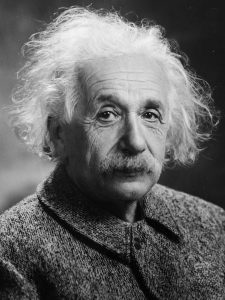 Another innovator in atomic theory was Albert Einstein. Einstein (5-#17, STEM-#10, Complete-#163), a German-born theoretical physicist, is most famous for developing the theory of relativity. That’s not all he did, though! He later won the Nobel prize for physics in 1921 for his explanation of photoelectric effect.
Another innovator in atomic theory was Albert Einstein. Einstein (5-#17, STEM-#10, Complete-#163), a German-born theoretical physicist, is most famous for developing the theory of relativity. That’s not all he did, though! He later won the Nobel prize for physics in 1921 for his explanation of photoelectric effect.
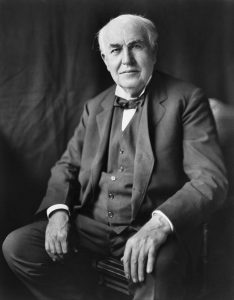 Thomas Edison (5-#16, STEM-#9, Complete-#162), the renowned inventor, held a record 1093 U.S. patents. He is also credited with innovations in physics, electrical and mechanical engineering. Some of his inventions include the phonograph, light bulb, and one of the earliest motion picture cameras!
Thomas Edison (5-#16, STEM-#9, Complete-#162), the renowned inventor, held a record 1093 U.S. patents. He is also credited with innovations in physics, electrical and mechanical engineering. Some of his inventions include the phonograph, light bulb, and one of the earliest motion picture cameras!
Celestial Studies
Benjamin Banneker (5-#28, STEM-#7, Complete-#153) was one of the first African Americans to gain recognition in science. A largely self-taught mathematician and astronomer (author, farmer, and urban planner too!), Banneker built the first American-made clock. He also created tables showing positions of the planets and stars that were used by navigators for determining latitude and longitude.
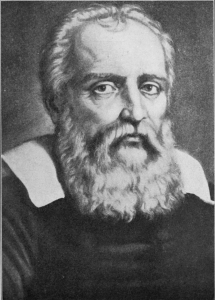 Considered the father of modern science, Galileo Galilei (5-#24, STEM-#5, Complete-#165), made major contributions in physics, astronomy (and mathematics and philosophy!), such as the invention of an improved telescope. With it, he could observe and describe significant features throughout the solar system, including the moons of Jupiter and the rings of Saturn.
Considered the father of modern science, Galileo Galilei (5-#24, STEM-#5, Complete-#165), made major contributions in physics, astronomy (and mathematics and philosophy!), such as the invention of an improved telescope. With it, he could observe and describe significant features throughout the solar system, including the moons of Jupiter and the rings of Saturn.
An astronaut and aerospace engineer, Neil Armstrong (5-#78, Complete-#152) was the first person to walk on the moon. He stepped off the lunar landing module Eagle on July 20, 1969!
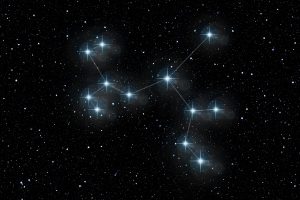 Looking for more to explore? Turn your focus to Suns, Stars, and Galaxies (4-#78, Complete-#144). Or, cross curricular lines to link science and social studies and mix in some language arts too with podcasts covering the stars and the folklore of other cultures.
Looking for more to explore? Turn your focus to Suns, Stars, and Galaxies (4-#78, Complete-#144). Or, cross curricular lines to link science and social studies and mix in some language arts too with podcasts covering the stars and the folklore of other cultures.
- Native American Constellations (4-#67, Complete-#146)
- Greek Constellations (4-#68, Complete-#145)
Further Fun
Need some ideas to extend the lesson after the podcast is through? An array of activities and experiments will keep your budding scientists engaged.
Don’t leave out the solar system in your searching! You are sure to discover loads of ideas for teaching space. Create a marshmallow constellation with your class. Check out a local observatory on a field trip, or view their resources from the comfort of your classroom. Don’t forget about national possibilities in your quest. NASA has a wealth of materials to supplement your study!


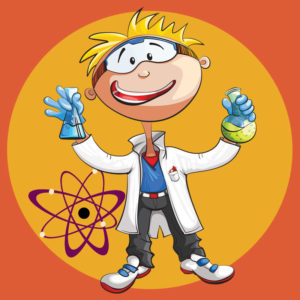
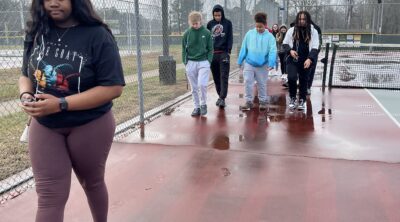
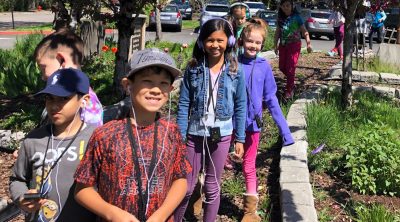
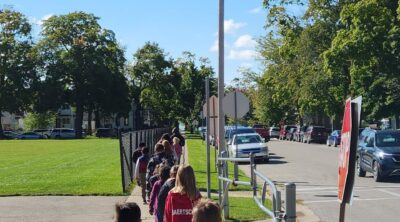
Leave a Reply